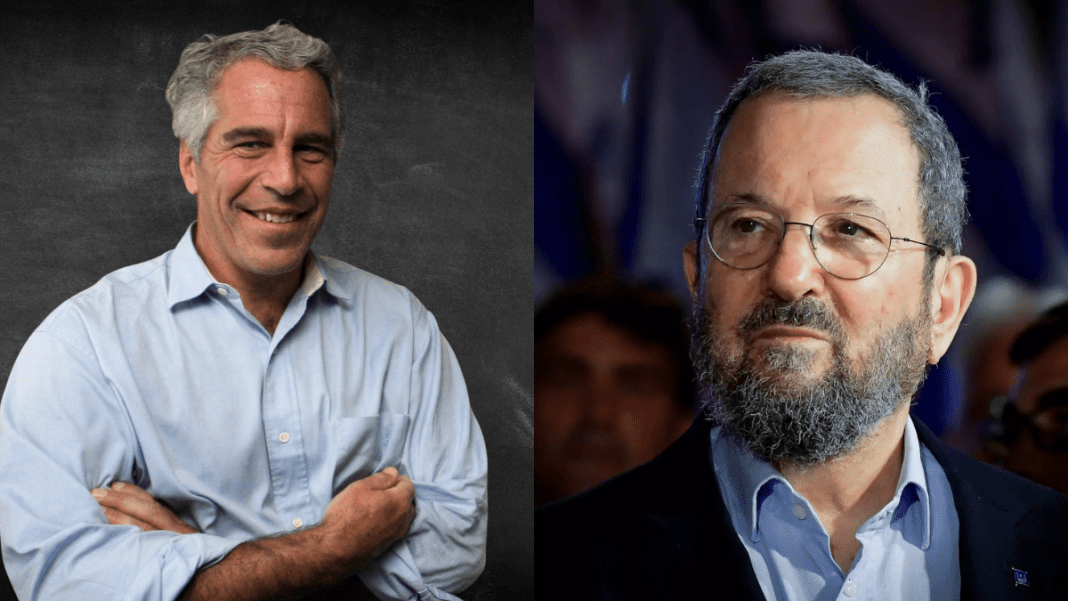A new set of leaked emails shows Jeffrey Epstein played a surprising role in a security deal between Israel and Mongolia.
Epstein and Barak’s Hidden Partnership
A pro-Palestinian hacking group called Handala published the emails. They came from the personal inbox of former Israeli Prime Minister Ehud Barak.
Barak had just stepped down as Israel’s Defense Minister in early 2013 when he visited Mongolia. Barak handled face-to-face talks with Mongolian leaders. Epstein worked behind the scenes. He helped organize strategy meetings in New York, gave advice on proposals, and suggested adding famous international figures like economist Lawrence Summers to Mongolia’s advisory team.
This connection has never been widely reported before. Epstein, who died in prison in 2019 while awaiting trial for sex trafficking, is now shown to have influenced official international agreements involving Israeli security.
How Epstein Shaped the Mongolia Plan
The emails show how Epstein got involved. In April 2013, Barak went to Ulaanbaatar, Mongolia’s capital. He met top security officials and President Tsakhiagiin Elbegdorj. The visit aimed to open Mongolia’s market to Israel’s defense and technology industries.
At the same time, Terje Rød-Larsen, president of the International Peace Institute (IPI), was also active in Mongolia. He was part of Epstein’s circle. The group proposed creating an advisory council for Mongolia. It would include global political and economic experts. Epstein pushed for his contacts to join. Draft proposals showed payments of $100,000 for each advisor.
One striking email shows Barak sending a memo with Israel’s official emblem to Mongolian officials. The memo proposed upgrading Mongolia’s intelligence services, rapid response units, and advanced surveillance systems. Epstein encouraged Barak and stayed deeply involved, even offering advice on how to turn political chaos around the world into business opportunities.
Leaked emails expose Epstein’s $54M legal war chest — Dershowitz, Starr, Lefkowitz among defenders
In 2014, Epstein loaned Barak $1 million to support an Israeli tech startup called Reporty Homeland Security, later renamed Carbyne. The company built emergency response software that could track phones in real time. Investor presentations from 2016 showed Mongolia listed as one of the target countries for expansion.
By 2017, Israeli and Mongolian officials signed a deal to cooperate on emergency services, including introducing Israeli technology. In 2019, the Israeli Defense Forces and Mongolian military took part in joint exercises. The leaked files strongly suggest Epstein helped lay the groundwork for these developments.
Fallout From the Leaked Emails
After Epstein’s death, the scandal led to changes at IPI. Rød-Larsen resigned in 2020. It was revealed he had received a personal loan from Epstein in 2013. A KPMG audit found that Epstein-linked entities donated at least $650,000 to IPI from 2010 to 2019. Later, the organization pledged to give the same amount to charities that help trafficking and abuse victims.
Ehud Barak admitted meeting Epstein at his homes in New York and the Caribbean. He denied knowing about Epstein’s crimes. Barak also said he worked with Epstein on business deals after leaving government, but claimed their contact was rare. The leaked emails show a different story. They reveal daily talks, political planning, and financial discussions between the two.
The emails also show a personal tone. Epstein wrote that Barak was one of the few people he really enjoyed being with. In another message, Barak asked Epstein for his thoughts on a potential contact. He ended the note with: “In the meantime enjoy the Island.”
The leaks offer the clearest evidence yet that Epstein was not just a financier with disturbing private crimes, but also someone who quietly shaped international agreements. In this case, he helped Israel expand its influence into Mongolia through security cooperation, high-level diplomacy, and private business ventures.





